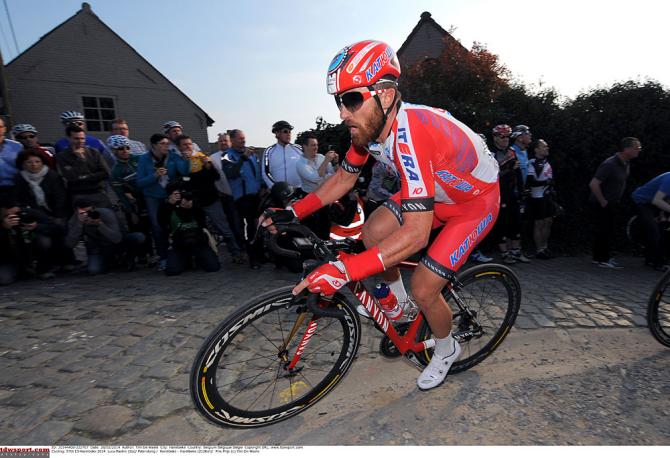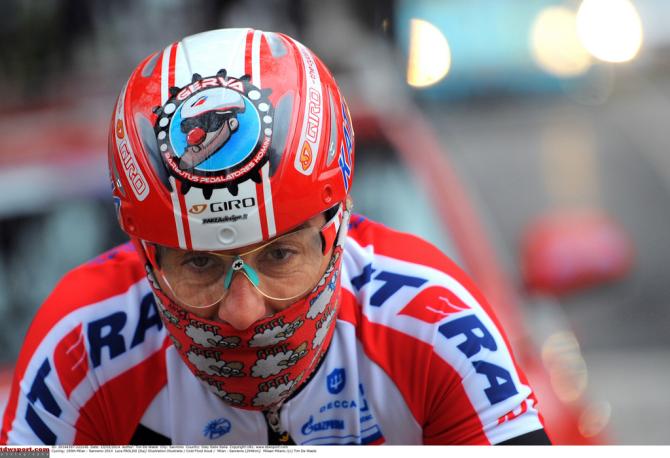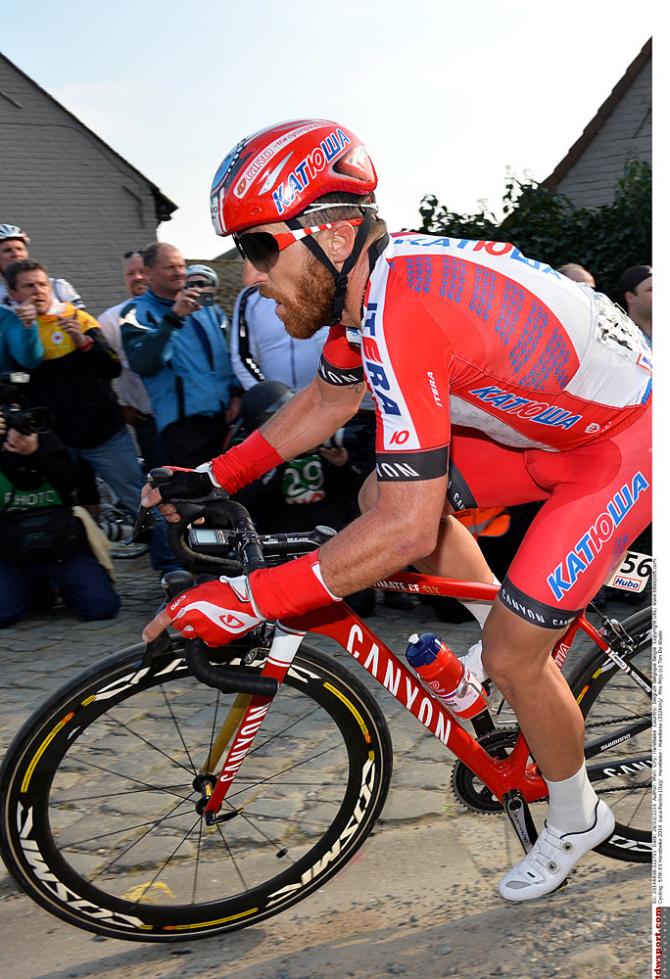Paolini plots plan of attack for the Tour of Flanders
Italian buoyed by Milan-San Remo performance



When Luca Paolini goes to scout the Tour of Flanders route on Friday morning, the Katusha man will be doing more than simply stretching his legs and familiarising himself with the climbs - he will be on the look-out for an opportunity.
"After I've gone and had a look around the new course, I'll have two days to mull over where I should attack," Paolini told Cyclingnews in De Panne on Tuesday. "That way, I'll have a film in my head beforehand of what I'd like to do, but on Sunday, I'll still have to see how the race is going. There are always unforeseen factors, and you just have to see how your legs are on Sunday morning as well."
At 37 years of age, Paolini has been around the block long enough to know that the road to Tour of Flanders victory runs through Tom Boonen and Fabian Cancellara, and that out-gunning both of the Ronde's Old Firm in the finale is little short of an impossibility. Like many, then, Paolini's chances rest on trying to anticipate the big hitters and hoping that circumstances behind play out in his favour.
"This year, the parcours is a bit different again, so there might be a chance to get away in a little group," Paolini said. "We'll have to find some way of surprising the big names anyway. If you wait until the moment when they start to attack, then you've already lost the race. They're just too strong, so you have to invent something."
This is the third year that the Ronde finishes in Oudenaarde, with its fearsome finale over the Oude Kwaremont and Paterberg, and while the action on that final circuit itself has been gripping, the racing beforehand has been relatively conservative. There is a distinct sense that the old finish at Meerbeke offered more scope for invention, while the Oudenaarde finale rewards raw strength.
"It does seem like people wait until the last minute because they're afraid they won't have the energy in the finale," Paolini said of the new finale. "Maybe before there was a bigger scope for attacking earlier because there were more flat roads in the finale, so a good passista could make the difference by attacking from distance."
Paolini began his Belgian campaign with a solid 13th place finish at E3 Harelbeke, although a crash forced him to abandon Gent-Wevelgem on Sunday. Though wearing a bandage on his right knee at the start of the first stage of the Three Days of De Panne, he said that he felt no ill-effects from the incident.
Get The Leadout Newsletter
The latest race content, interviews, features, reviews and expert buying guides, direct to your inbox!
"I fell but it could have been a lot worse, really," Paolini said. "With the good weather, a lot of riders are suffering a bit less than they were this time last year with the cold. That means that there are more riders pushing to be at the front, so it's inevitable that there've been more crashes this year."
While the Three Days of De Panne has very much fallen out of fashion as a means of preparing for the Tour of Flanders, Paolini has opted to line up for the first two stages at least, encouraged by the mild temperatures in Belgium this week. Indeed, he will remain at Katusha's Classics base in Kortrijk until Paris-Roubaix.
"I like staying in Belgium because the atmosphere here is special and that helps me to stay concentrated on the two big objectives, Flanders and Roubaix," he said.
Paolini has been buoyed, too, by his race-winning turn in support of Alexander Kristoff in the finale of Milan-San Remo, a cameo that came 11 years after he helped to pilot Paolo Bettini to victory in La Classicissima while helping himself to a third place finish. His part in Bettini's 2003 win may have been more spectacular, but his assist for Kristoff was arguably more important.
"Well, the more emotional of the two was definitely with Bettini because we're very close friends," Paolini said. "But maybe this one is more important because it made me realise that I'm still a good athlete and that I can perhaps go on and do another year or two in the peloton. When you're in front at the finish of a classic like San Remo you realise that you still have quite a bit of strength left."

Barry Ryan was Head of Features at Cyclingnews. He has covered professional cycling since 2010, reporting from the Tour de France, Giro d’Italia and events from Argentina to Japan. His writing has appeared in The Independent, Procycling and Cycling Plus. He is the author of The Ascent: Sean Kelly, Stephen Roche and the Rise of Irish Cycling’s Golden Generation, published by Gill Books.